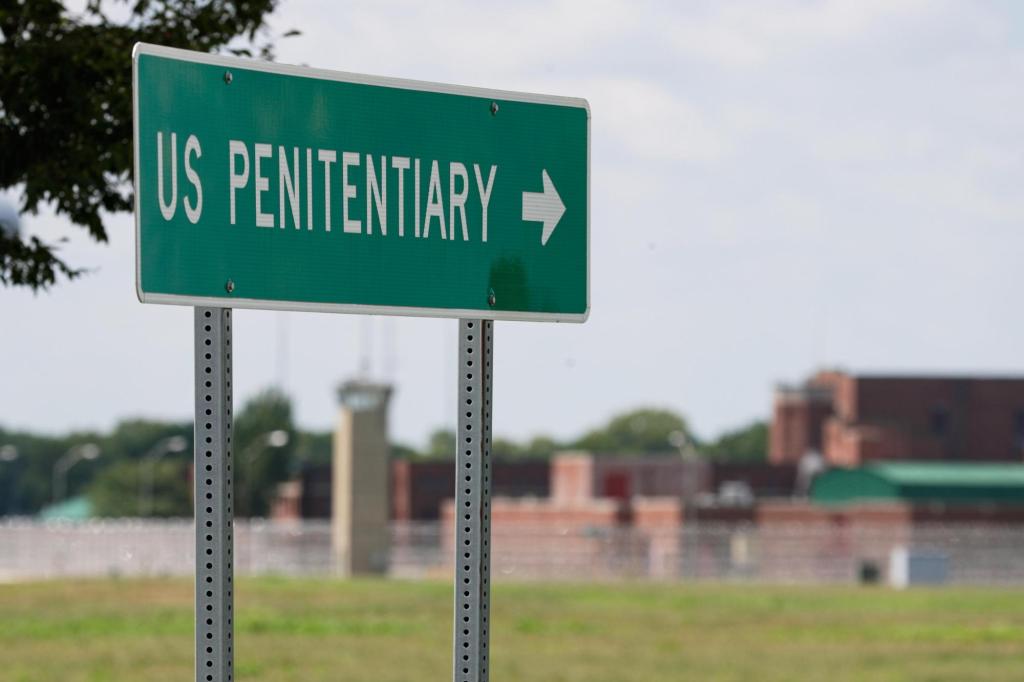
By MICHAEL KUNZELMAN
WASHINGTON (AP) — The federal Bureau of Prisons must continue providing hormone therapy and social accommodations to hundreds of transgender inmates following an executive order signed by President Donald Trump that led to a disruption in medical treatment, a federal judge ruled Tuesday.
U.S. District Judge Royce Lamberth said in his ruling a federal law prohibits prison officials from arbitrarily depriving inmates of medications and other lifestyle accommodations that the bureau’s own medical staff has deemed appropriate.
The judge said the transgender inmates who sued to block Trump’s executive order are trying to lessen the personal anguish caused by their gender dysphoria, the distress that a person feels because their assigned gender and gender identity don’t match.
“In light of the plaintiffs’ largely personal motives for undergoing gender-affirming care, neither the BOP nor the Executive Order provides any serious explanation as to why the treatment modalities covered by the Executive Order or implementing memoranda should be handled differently than any other mental health intervention,” the judge wrote.
The Bureau of Prisons is providing hormone therapy to more than 600 inmates diagnosed with gender dysphoria. The bureau doesn’t dispute that gender dysphoria can cause severe side effects, including depression, anxiety and suicidal thoughts, the judge said.
The Republican president’s executive order required the bureau to revise its medical care policies so that federal funds aren’t spent “for the purpose of conforming an inmate’s appearance to that of the opposite sex.”
Lamberth’s ruling isn’t limited to the plaintiffs named in the lawsuit. He agreed to certify a class of plaintiffs consisting of anyone who is or will be incarcerated in federal prisons.
The lawsuit’s named plaintiffs include Alishea Kingdom, a transgender woman who was prescribed hormone therapy injections and approved to receive social accommodations, including women’s undergarments and cosmetics. Kingdom was denied her hormone shot three times after Trump signed his order, but she had it restored roughly a week after she sued. Her access to feminine undergarments hasn’t been restored, according to the judge’s ruling.
“In Ms. Kingdom’s case, there is no indication at all that the BOP means to leave her hormone therapy in place long-term; indeed, as noted above, she was informed by BOP personnel that the decision to resume her treatment was a consequence of this litigation itself, raising the specter that her treatments might be discontinued as soon as the litigation has concluded,” Lamberth wrote.
Trump’s order also directed the Bureau of Prisons to ensure that “males are not detained in women’s prisons.” In February, however, Lamberth agreed to temporarily block prison officials from transferring three incarcerated transgender women to men’s facilities and terminating their access to hormone therapy.
The judge said there’s no evidence Trump or prison officials considered the harm the new polices could do to transgender inmates.
“The defendants argue that the plaintiffs have not alleged irreparable harm because they are all currently receiving hormone medications. But it suffices to say that all three plaintiffs’ access to hormone therapy is, as best the Court can tell, tenuous,” Lamberth wrote.
The plaintiffs are represented by attorneys from the Transgender Law Center and the American Civil Liberties Union.
Lamberth, a senior judge, was nominated to the bench by President Ronald Reagan, a Republican, in 1987.
Originally Published:



